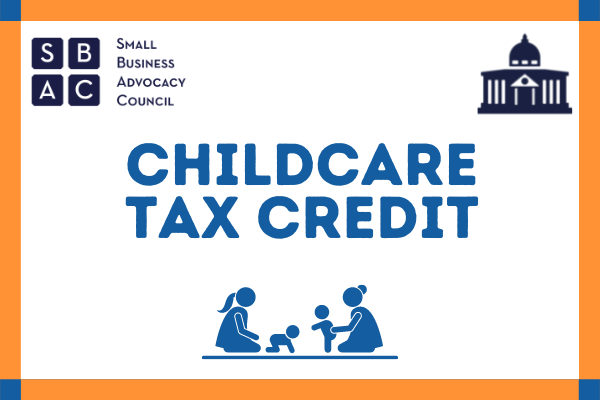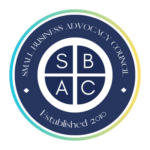
One issue that has lead many to put off re-entering the workforce from the pandemic fallout is the cost and difficulty in terms of finding affordable and quality childcare. The SBAC has determined it is such a significant issue that it has been added to our agenda for the 2022 Spring Session.
The childcare tax credit will provide working families resources to offset the costs associated with childcare. To be eligible, households must jointly earn an annual income below $75,000 and have at least one child under the age of 17. Taxpayers that file individually must earn less than $45,000 and have one child under the age of 17.
Under this program, taxpayers shall receive a $1500 tax credit for the first child under age 17. An additional $500 will be allocated to each additional child under the age of 17 with a max payment of $2500 per family. This credit is intended to be used to offset the costs associated with childcare.
The program will be capped at $100,000,000 absent further appropriations. This tax credit will sunset in 2025 unless extended by the legislature.
Program Details:
- Tax credits for eligible working families to offset the costs of childcare
- Eligible families must earn:
- $75,000 or less filing jointly
- $45,000 or less filing individually
- Eligible families must also have at least one child under the age of 17
- Tax credit of $1500 for the first child under age 17
- $500 increase for each additional child under age 17
- The maximum allowable tax credit per family is $2500
- Program capped at $100,000,000
- Program to sunset in 2025
- Eligible families must earn:
Back to Business Grants Action Call
Illinois Policymakers Should Support Small Businesses The pandemic and COVID-19 mitigations began inflicting immense damage to small businesses in March 2020. Thousands of small businesses initially applied for Illinois Business Interruption Grants. While these grants helped some small businesses, approximately 80% of applicants were not awarded a grant. Illinois then received over $8 billion in…
Cutting Red Tape in Zoning: Neighborhood Revitalization Coalition
How can we cut red tape for small businesses through zoning? In the City of Chicago, every business license, location expansion and change of location application needs to be reviewed and approved by the Zoning Board of Appeals before a business license application can be processed. For a business owner to submit proper documentation, they…
Neighborhood Development and Investing with Community Investment Corp. & Woodlawn
Please join the Woodlawn Chamber of Commerce and the Community Investment Corporation (CIC) via Zoom to discuss targeted investments and working with the organization. Hear about community investment ideas. Learn about the Woodlawn – specific lending program. Understanding steps to work with CIC. Register here: https://www.ticketfalcon.com/e/cic/ SPONSORS Fifth Third Bank Saul…











